Apple's new iPad is billed as, among other things, an attempt to recapture some share of the education market, one currently dominated by cheaper Chromebooks. Here's a look at how Apple's latest offering measures up to the competition.
With Apple having fallen behind Google and Microsoft in the education market in recent years, the company has launched a push to close the gap. Apple's initiative began last week at its "Field Trip" event in Chicago and the launch of a new iPad, which comes at a discounted price for bulk purchases by schools.
While the company's moves to place its early computers in educational institutions in the 1970s and '80s are a huge part of the company's history, Apple has of late been falling behind its rivals when it comes to getting its products into schools. According to stats released by Futuresource Consulting last month, 58 percent of the K-12 computing devices market is currently held by Chromebooks, compared with 22 percent for Windows devices and 19 percent Apple (of which iPads are 14 percent and Macs five percent.)
At the "Field Trip" event, Tim Cook reiterated that education "remains a big part of who we are as a company," and touted various initiatives, including programs that help teach coding to children. Also at the event, vice president of product marketing Greg Joswiak stated that thanks to the new processor, the new iPad "is now more powerful than most PC laptops and virtually every Chromebook."
One of the leading Chromebooks, the Acer Chromebook 11 has been around for several years, but the latest edition was unveiled at CES in January before arriving on the market this month. The computer, according to Acer's press release, "offers strong everyday performance and a portable design with all-day battery life of up to 10 hours." The company also touts the Acer Chromebook 11's easy access to the Google ecosystem, as well as easy multi-user use.
The Acer 11 is also geared, in part, towards the academic market; the website for the Acer Chromebook 11 line touts "powerful classroom-level technology," which is "designed specifically for students to use all-day in whatever way."
As Apple is continuing its push into the educational marketplace, how does the new iPad compare to the Acer Chromebook 11, one of the leading Chromebooks?
Appearance and Display
Of the two devices, the Acer Chromebook 11 is much thicker, 18.15mm to the 2018 iPad's 7.5mm. The 2018 iPad is also much lighter, weighing 1.03 pounds compared to the more than 2.43-pound Acer Chromebook 11. m, which are important to keep in mind if you're a student and you're concerned about how much you're lugging around each day. However, any iPad accessories will add to both the weight and the thickness.
When it comes to the screen, the Acer Chromebook 11's is bigger (11.6 inches), to the iPad's 9.7 inches. But the iPad comes out ahead when it comes to resolution (2048 by 1536), compared to the Acer Chromebook 11 (1366 by 768.) The Acer Chromebook 11 is available in both touchscreen and non-touchscreen models.
In terms of color, the Acer Chromebook 11 is offered only in blue, at least according to its CES introduction, while the iPad is available in silver, gold, and space gray.
Performance
The new iPad offers the new 2.22Ghz quad-core A10 Fusion with M10 and 2GB of RAM, while the Acer Chromebook 11 uses the 1.6GHz quad-core Intel Celeron N3150 or dual-core N3350, with 4GB of RAM, depending on the version.
According to Geekbench, the new iPad boasts a 3,254 single-core score and a 5,857 multi-core score. The latest version of the Acer Chromebook 11 does not yet have a Geekbench score listed, but concurrent models had single-core scores in the 2,400 range and multi-core scores in the 4,700 range.
Acer claims up to 10 hours of battery life for the Acer Chromebook 11, while the 2018 iPad does as well. Both devices offer dual stereo speakers. When it comes to connectivity, both devices offer 802.11ac Wi-Fi and Bluetooth 4.2.
Price
The 2018 iPad starts at $329, although there's an education discount that knocks the price down to $299 for bulk purchases by schools, and slightly higher for students, educators and homeschoolers. However, the iPad does not come with certain accessories, such as the Apple Pencil or a keyboard.
The Acer Chromebook 11 starts at $249, which includes 16GB of storage and a 1366x768 resolution screen — and a keyboard.
Conclusion
Apple isn't going to make any headway in schools from a financial perspective with the new iPad. It is essentially the same cost as the old one, with the primary differences to users being Apple Pencil support, and the company not "going loud" with the previous model's educational price.
Between the iPad and Acer Chromebook 11, the price, battery life and general performance are in the same ballpark, but the new Acer Chromebook 11 is among the higher-end ones that schools choose. Most schools are cash-strapped, and volume of devices available for a set amount of money generally is the prime consideration to technological ones making the technological gap larger for a one-to-one comparison.
If price was no object comparing the two, the iPad is lighter and slimmer, and has a significantly higher-resolution screen, while the Acer's screen is physically larger. The Apple Pencil and Logitech Crayon are superior to anything available on the Chromebook, but adding another $99 or $49 respectively makes a tenuous financial situation worse.
But, Apple has never really taken a shot at the low-cost market in a long time. Apple Pencil support will attract some schools, and entice other already invested in the Apple ecosystem to upgrade — and besides a really great tablet for the commercial market, that may be all Cook and company were looking for.
 Stephen Silver
Stephen Silver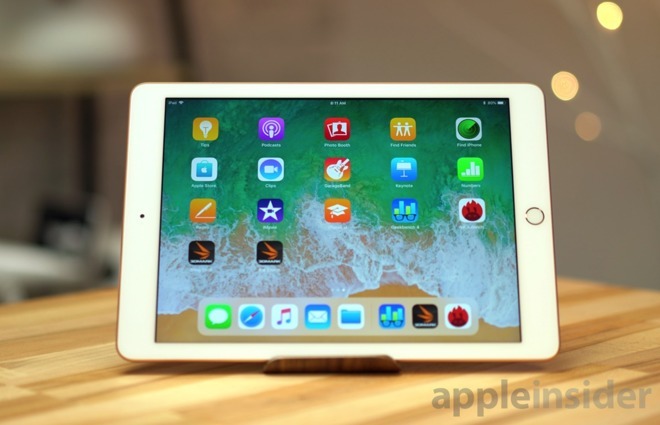
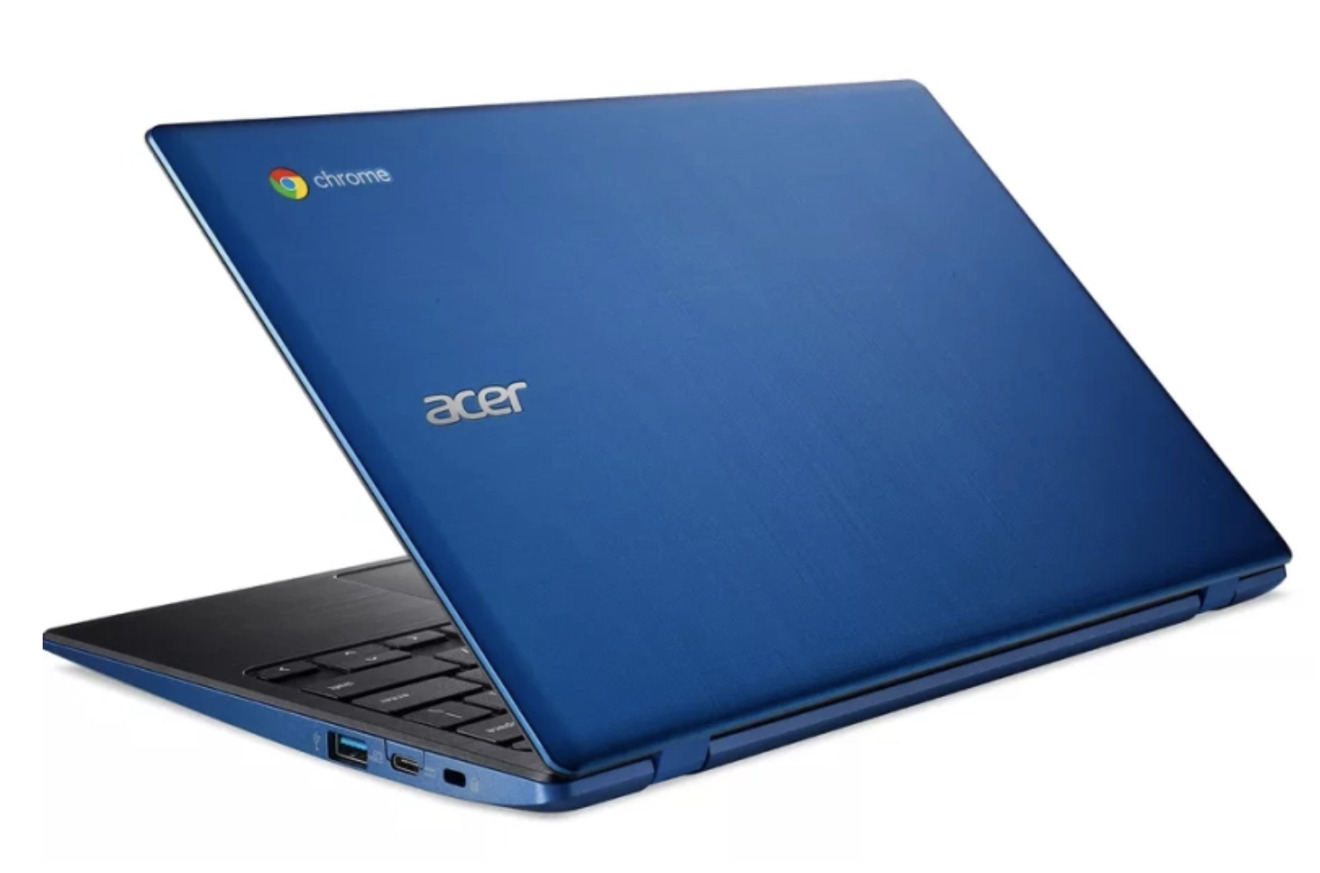
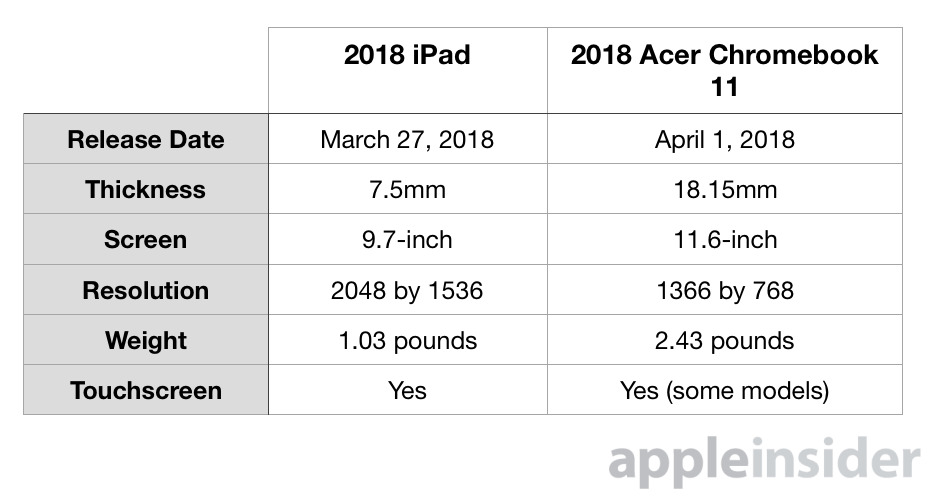
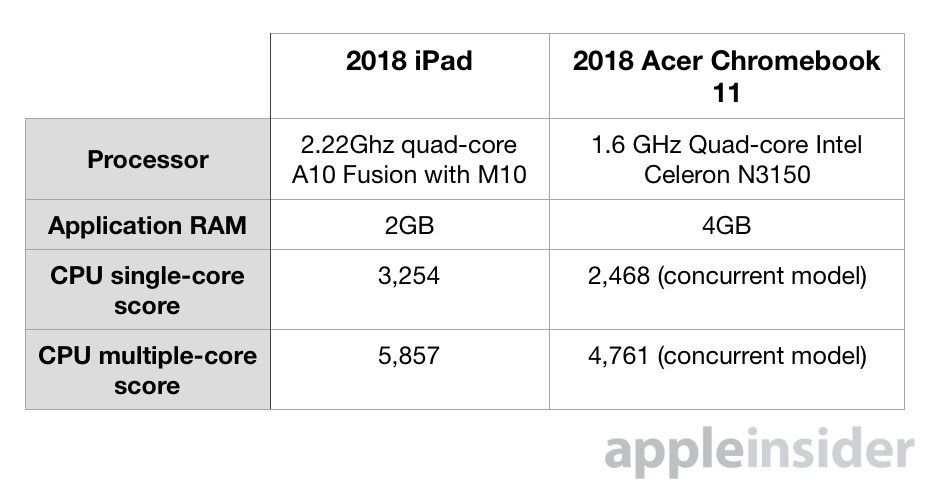
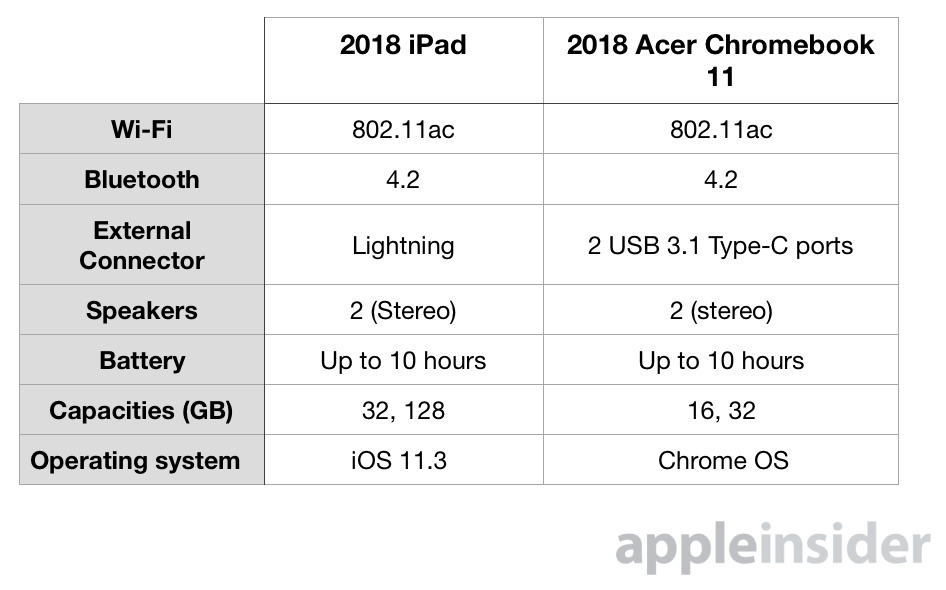







-m.jpg)






 Malcolm Owen
Malcolm Owen
 William Gallagher
William Gallagher
 Charles Martin
Charles Martin
 Christine McKee
Christine McKee
 Wesley Hilliard
Wesley Hilliard

 Andrew Orr
Andrew Orr


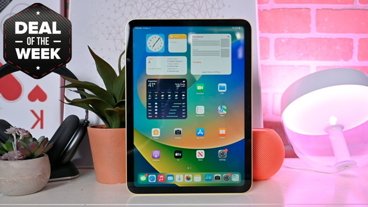





56 Comments
The cost to schools isn't just the hardware. It's also the support and upkeep. That's not any different than in the corporate world, where cheaper hardware isn't necessarily the best choice from a financial perspective.
My kid uses Chromebooks at his school. My take on it is it’s a device to do assignments, projects, school work, and that’s about it. It doesn’t foster and inspire creativity the way the iPad does that my kid uses at home.
At a minimum, my children will be using personal iPads to take notes during class. Our school system isn’t 1-to-1, but if it were and they distributed Chromebooks, I would still have my children use their iPads to take notes with a Pencil or whatever cheaper stylus.
All this Education discussion about Chromebooks and needing a keyboard reminds me of corporate IT, where computer equipment are purchased based on the needs of the IT department, not based on the needs of people who actually use them. No thanks.